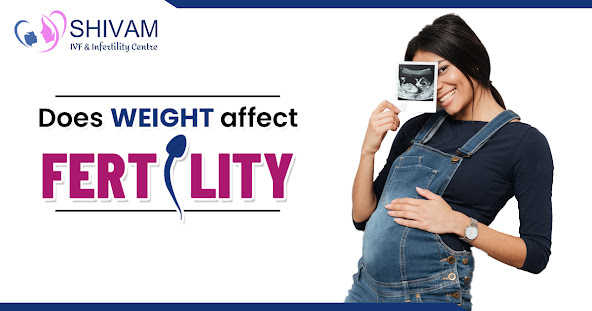Can one have a baby with PCOS?
The majority of women want and expect to have children. On the other hand, women with chronic health conditions, such as polycystic ovary syndrome (PCOS), frequently have concerns about motherhood, including whether or not they can become pregnant.
PCOS is a complex hormonal condition that affects up to one in every five reproductive-age women. Most women with PCOS have elevated levels of luteinizing hormone, which causes ovulation, and decreased levels of follicle-stimulating hormone, which is necessary for pubertal development and the function of both women's ovaries and men's testes.
Women with PCOS also have a lack of estrogen ("female" hormones) and an excess of androgens ("male" hormones). This results in tiny cysts on the ovaries' surface.
Women
with PCOS frequently have irregular menstrual cycles because they do not
ovulate or ovulate only infrequently as a result of these hormonal imbalances.
As a result, women with PCOS are more likely than other women to have
difficulty conceiving. While most women with PCOS become pregnant, it takes
them longer to do so and they are more likely to require fertility treatment
than women without PCOS.
How can one increase the chances of getting pregnant?
Being in the best possible health before trying for a baby enhances the likelihood of pregnancy and gives the baby the best possible start in life.
Adopting a healthy lifestyle - including being in a healthy weight range, not smoking, limiting alcohol consumption, eating a healthy diet, getting plenty of regular exercise, and getting enough sleep - is the first thing to do to improve a woman's chances of becoming pregnant and having a healthy baby, according to the global evidence-based guidance for the assessment and management of PCOS.
Women planning to become pregnant should have a preconceived idea of health check with their doctor to get the best advice and support. This is also an opportunity to discuss a plan of action if PCOS interferes with fertility.
A
modest weight loss can result in more regular ovulation in women with PCOS who
are overweight or obese, increasing the chance of pregnancy. Having sex during
the "fertile window" (the five days preceding and including
ovulation) increases the chance of conception for those who know they ovulate.
What are your options?
If you've been trying for a baby for 12 months without accomplishment (or six months if you're 35 or older), it's time to see a doctor. Your primary care physician is your first point of contact, but she may refer you to a fertility specialist.
If you have very anomalous or infrequent periods, you are not ovulating and will need medical assistance to have a baby. Ovulation induction is the first line of medical treatment. This consists of a series of tablets or injections that stimulate the ovaries to release an egg that can be fertilized either during intercourse or through intra-uterine insemination (IUI).
If this doesn't work, there could be other reasons why pregnancy isn't possible, and more invasive treatments like IVF may be required.
IVF involves a series of injections to stimulate the ovaries to produce a large number of eggs. When the eggs are mature, they are extracted using an ultrasound-guided procedure under light anesthesia. In the laboratory, sperm is mixed with eggs to create embryos.
A few
days later, an embryo is implanted in the uterus, where it may develop into a
baby. If there are multiple embryos, they can be frozen for future use if there
is no pregnancy.
While IVF is safe in the hands of trained professionals, some potential side effects, such as ovarian hyperstimulation syndrome, exist. This is an overreaction to fertility drugs, which stimulate the ovaries to produce multiple eggs. This can result in stomach pain, nausea, vomiting, rapid weight gain, and blood clots
While
fertility issues are common in women with PCOS, it's reassuring that women with
PCOS and women without PCOS have roughly the same number of children.
Furthermore, while PCOS is associated with fertility issues, women with PCOS should
be aware that conception is possible and that effective contraception is
required to avoid pregnancy when it is not desired.
Do you
want to learn more about this? To book a consultation, please contact Shivam IVF. Shivam IVF is here to
assist you in making the best decision and taking the necessary measures to
improve your fertility life.
Source:- https://shivamivfcentredelhi.com/blog-details/can-one-have-a-baby-with-pcos-




Comments
Post a Comment